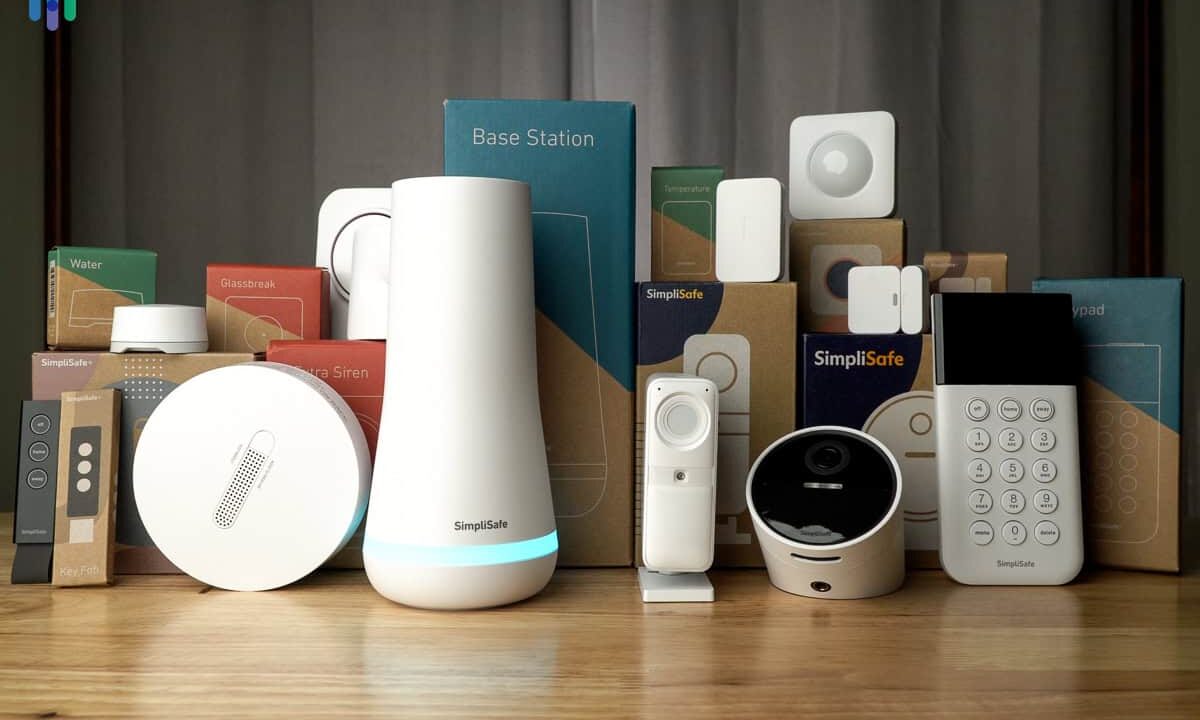Hey there, friend. Picture this: A few years back, I hit a rough patch after losing my job during a stormy economic downturn. Days blurred into nights filled with worry, and simple tasks felt like climbing mountains. That’s when I realized mental health isn’t just a buzzword—it’s the foundation of how we navigate life. In this article, we’re diving deep into managing your mental health, with a special nod to the incredible support available at Holy Cross Health in Fort Lauderdale, Florida. Whether you’re dealing with everyday stress or something more serious, we’ll explore practical steps, local resources, and why places like Holy Cross make all the difference. Let’s turn those mountains into molehills together.
What is Mental Health?
Mental health goes beyond just feeling happy—it’s about emotional, psychological, and social well-being that shapes how we think, feel, and act every day. It influences our ability to handle stress, build relationships, and make choices from childhood right through our golden years. According to experts, one in five Americans faces a mental health issue annually, highlighting how common these challenges are in our fast-paced world.
Common Signs of Mental Health Struggles
You might notice persistent sadness, anxiety that won’t quit, or changes in sleep and appetite signaling it’s time to pay attention. These aren’t weaknesses but signals your mind needs care, much like a check-engine light on your car. Ignoring them can lead to bigger issues, but spotting them early opens doors to effective management.
Why Early Awareness Matters
Catching mental health concerns early prevents them from snowballing into crises that disrupt work, family, or hobbies. It’s like tending a garden—regular weeding keeps things thriving. Building awareness empowers you to seek help without stigma, fostering a healthier, more resilient you.
Why Managing Mental Health is Crucial in Today’s World
In our always-on society, with social media feeds and work emails buzzing constantly, prioritizing mental health keeps us grounded and productive. It boosts immunity, sharpens focus, and strengthens bonds with loved ones, turning potential breakdowns into breakthroughs. Plus, unmanaged issues like depression rank as a top cause of hospitalizations for adults under 45.
The Impact on Daily Life
Poor mental health can sap energy for routines, strain relationships, and even affect physical health through weakened immunity or chronic pain. But actively managing it restores balance, helping you enjoy hobbies and connect meaningfully. It’s the difference between surviving and truly living.
Long-Term Benefits for You and Your Community
Investing in your mental well-being ripples outward, creating supportive families and workplaces that reduce societal burdens like healthcare costs. Communities thrive when individuals feel empowered, leading to less isolation and more collective strength. It’s a win-win that starts with one person—you.
Everyday Strategies to Manage Your Mental Health
Start small with habits that fit your lifestyle, like incorporating movement or mindful moments into your routine. These aren’t quick fixes but building blocks for lasting resilience against life’s curveballs. Remember, consistency turns these strategies into second nature, lightening your mental load over time.
Get Moving: The Power of Physical Activity
Exercise releases endorphins that lift your mood, whether it’s a brisk walk along Fort Lauderdale’s beaches or a yoga session at home. Aim for 30 minutes most days to combat stress and improve sleep quality. It’s like hitting a reset button for your brain, making tough days more manageable.
Pros and Cons of Different Exercise Types
Pros of walking: Low-cost, accessible anywhere, gentle on joints. Cons: May not build muscle quickly.
Pros of yoga: Enhances flexibility and mindfulness, reduces anxiety. Cons: Requires guidance to avoid injury.
Pros of gym workouts: Builds strength, social opportunities. Cons: Can be intimidating for beginners.
Fuel Your Mind with Healthy Eating
Nourish your body with balanced meals rich in fruits, veggies, and omega-3s to stabilize mood and energy levels. Skip excessive sugar and caffeine that spike and crash your system. Think of food as fuel—quality in means steady mental performance out.
Prioritize Restful Sleep
Aim for seven to nine hours nightly by creating a wind-down routine, like dimming lights and avoiding screens. Good sleep regulates emotions and sharpens thinking, preventing irritability from building up. It’s the unsung hero of mental health maintenance.
Bullet Points: Tips for Better Sleep
- Stick to a consistent bedtime, even on weekends.
- Create a cool, dark environment free from distractions.
- Avoid heavy meals or stimulants close to bedtime.
- Journal worries to clear your mind before lights out.
Build Strong Social Connections
Reach out to friends or join community groups to combat loneliness, which can worsen mental health. Sharing laughs or burdens lightens the load, reminding you you’re not alone. In Fort Lauderdale, local events offer easy ways to connect and recharge.
Practice Mindfulness and Stress Reduction
Techniques like deep breathing or meditation calm racing thoughts, bringing you back to the present. Apps make it simple to start, turning overwhelming moments into manageable ones. It’s like having a mental pause button in your pocket.
Table: Comparison of Stress Relief Techniques
| Technique | Time Needed | Cost | Effectiveness for Anxiety |
|---|---|---|---|
| Meditation | 10-20 mins | Free | High, promotes long-term calm |
| Journaling | 5-15 mins | Low | Medium, helps process emotions |
| Deep Breathing | 2-5 mins | Free | High, quick relief in crises |
| Hobbies | Varies | Varies | Medium, builds ongoing joy |
When to Seek Professional Help
Don’t wait for a crisis—reach out if symptoms persist for weeks, interfering with daily life. Professionals offer tools and perspectives you might miss on your own. It’s a sign of strength, not weakness, to ask for support when needed.
Recognizing When It’s Time
If anxiety disrupts work or depression steals joy from activities, it’s time to consult experts. Early intervention prevents escalation, much like catching a cold before it becomes pneumonia. Listen to your body and mind—they know when extra help is due.
Types of Professional Support Available
Therapy, counseling, or medication can tailor to your needs, from talk sessions unpacking trauma to meds balancing brain chemistry. Group support adds community insight. Explore options that feel right for your situation.
Pros and Cons of Therapy Options
Pros of individual therapy: Personalized attention, deep dives into issues. Cons: Can be time-intensive.
Pros of group therapy: Shared experiences, lower cost. Cons: Less privacy.
Pros of medication: Quick symptom relief. Cons: Possible side effects.
Mental Health Resources at Holy Cross Health in Fort Lauderdale
Holy Cross Health stands as a beacon for mental health support in Fort Lauderdale, offering compassionate care rooted in community values. Their programs address everything from anxiety to substance-related issues, ensuring accessible help. As a trusted Florida hospital, they blend medical expertise with holistic approaches for comprehensive healing.
Behavioral Health Services Offered
From outpatient counseling to inpatient rehab, Holy Cross provides tailored plans for depression, anxiety, and more. Their team includes skilled therapists and nurses focused on recovery. It’s a safe space where healing begins with understanding.
Partner Programs for Specialized Care
Collaborations like New Vision for detox and Lifeskills for residential treatment extend their reach for co-occurring disorders. These partnerships ensure seamless care, from crisis intervention to long-term support. Ideal for those needing intensive help.
Bullet Points: How to Access Services
- Call their main line or visit the website to schedule an appointment.
- Use online portals for virtual consultations if in-person isn’t feasible.
- Check insurance coverage— they work with many plans, including Florida Blue.
- For emergencies, dial 988 or head to their ER.
Navigational Guide: Finding Help at Holy Cross
Located in sunny Fort Lauderdale, Holy Cross Health is easy to reach via major roads like I-95. Their website maps out locations, from the main hospital to urgent care spots. Start by searching “Holy Cross behavioral health” online for directions and contacts.
Transactional Advice: Best Tools and Programs
For top-notch tools, consider their mindfulness workshops or stress management classes—proven to build resilience. The best program for many is their integrated care pathway, combining therapy and medical check-ins. Invest in these for lasting mental wellness.
People Also Ask (PAA) Section
Based on common searches, here are real questions people ask about managing mental health, with straightforward answers optimized for quick insights.
What are 5 ways to improve mental health?
Five effective ways include regular exercise, healthy eating, quality sleep, social connections, and mindfulness practices. These build a strong foundation for emotional stability.
How can I manage my mental health daily?
Incorporate small habits like journaling, walking, or deep breathing into your routine. Consistency helps, and tracking progress keeps you motivated.
Why is mental health important?
It affects every aspect of life, from relationships to productivity, helping you cope with stress and enjoy fulfillment.
What should I do if I need immediate help?
Call 988 for crisis support or visit a local ER like Holy Cross Health’s. Don’t hesitate—help is available 24/7.
How does physical health impact mental health?
They’re linked; exercise and nutrition boost mood, while poor habits can worsen anxiety or depression. Balance both for optimal well-being.
Integrating Humor and Emotional Support in Your Journey
Sometimes, managing mental health feels like herding cats—chaotic but doable with patience and a few treats (like self-care rewards). I once tried meditating during a hectic day and ended up napping instead; hey, rest counts too! Emotionally, remember you’re not alone; sharing your story, like I did earlier, connects us all in this human experience.
Wrapping up, managing your mental health is a personal adventure, but with resources like Holy Cross Health in Fort Lauderdale, you’re equipped for success. Take that first step today—whether it’s a walk on the beach or scheduling a chat with a pro. You’ve got this, and brighter days await.
FAQ
How do I know if I need mental health support?
If feelings of sadness, anxiety, or fatigue last more than two weeks and affect daily tasks, it’s wise to seek help. Early action prevents bigger issues.
What mental health services does Holy Cross Health offer?
They provide counseling, rehab, and crisis intervention, plus partnerships for detox and residential care. Visit their site for details.
Can exercise really help with depression?
Yes, regular activity releases feel-good chemicals, reducing symptoms and improving overall mood. Start small for sustainable results.
Where can I find free mental health resources?
Organizations like NAMI and SAMHSA offer free support groups and hotlines. Locally, Holy Cross connects you to community options.
Is mental health care covered by insurance at Holy Cross?
Many plans cover it, but check with them directly. They accept Florida Blue and others, aiming for accessible care.





